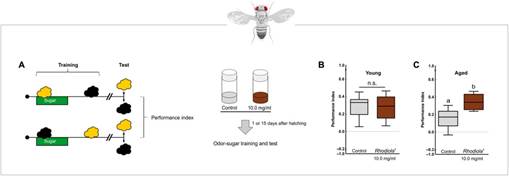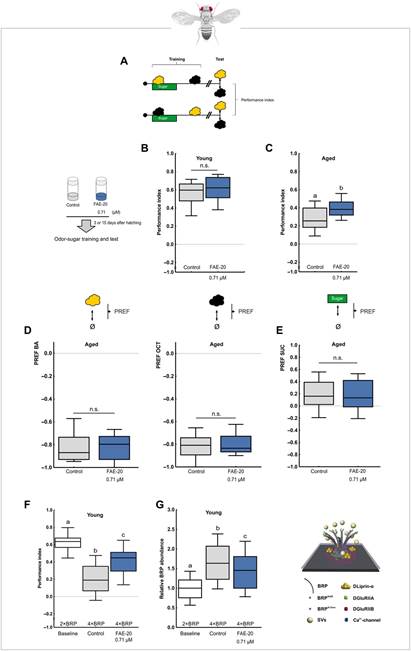Science子刊揭示:红景天植物的新潜力——提高记忆力
来源:《科学进展》
作者:Birgit Michels等
时间:2018-11-19


近日,《Science Advances》新发一篇文章揭示了一种药用植物的潜在用途:科学家们发现,红景天(Rhodiola rosea)中存在一种天然化合物可以改善大脑功能、提高记忆力。
伴随着老龄化,越来越多的人正经历着记忆障碍。严重的记忆衰退会影响生活质量,甚至于威胁到生命安全。迄今为止,还没有药物可以预防与年龄相关的认知能力下降。
现在,来自Leibniz研究所的科学家们首次证明,药用植物红景天的活性成分——植物酯类能够增强记忆。
红景天是一种景天科植物,长期以来一直被认为与智力提升有关联。文章一作Birgit Michels和团队试图确定这一植物中可以提高记忆力的具体物质,因为只有明确了关键的有效成分,才有实现药物开发的可能。
最初,研究团队以果蝇幼虫为模型,并与国际植物生物学研究所(IPB)的科学家们合作,进行植物化学分析。最终,他们分离出阿魏酸二十烷基酯(ferulic acid eicosyl ester,FAE-20),并确定其具有增强记忆的效果。
“虽然FAE-20是一个简单的化学分子,但是将其确定为植物提取物的有效成分,并与认知能力关联起来并非易事。”IPB教授Ludger Wessjohann表示道。
最新研究发现,相比于对照组,在果蝇食物中添加FAE-20有助于提高改善老年果蝇1/3的记忆。同时,FAE-20还能够阻止与年龄相关的蛋白在神经突触处聚集。随后,他们在小鼠模型上得到了类似的效果——FAE-20提高大脑海马区CA1神经元的兴奋性以及记忆力。
他们发现,无论是天然提取还是人工合成,FAE-20都可以提高动物记忆力。而且,合成的FAE-20还可以部分改善成年果蝇与年龄相关的记忆衰退,以及遗传因素导致的年轻果蝇早期记忆功能的丧失。
总而言之,至少动物模型显示,FAE-20是一种有助于改善老年人记忆的化合物。值得注意的是,在健康的条件下,使用记忆增强剂会带来风险。下一步,科学家们将朝临床试验努力,将其与老年痴呆症关联起来。(来源:生物探索 艾曼)
Memory enhancement by ferulic acid ester across species
Abstract Cognitive impairments can be devastating for quality of life, and thus, preventing or counteracting them is of great value. To this end, the present study exploits the potential of the plant Rhodiola rosea and identifies the constituent ferulic acid eicosyl ester [icosyl-(2E)-3-(4-hydroxy-3-methoxyphenyl)-prop-2-enoate (FAE-20)] as a memory enhancer. We show that food supplementation with dried root material from R. rosea dose-dependently improves odor-taste reward associative memory scores in larval Drosophila and prevents the age-related decline of this appetitive memory in adult flies. Task-relevant sensorimotor faculties remain unaltered. From a parallel approach, a list of candidate compounds has been derived, including R. rosea–derived FAE-20. Here, we show that both R. rosea–derived FAE-20 and synthetic FAE-20 are effective as memory enhancers in larval Drosophila. Synthetic FAE-20 also partially compensates for age-related memory decline in adult flies, as well as genetically induced early-onset loss of memory function in young flies. Furthermore, it increases excitability in mouse hippocampal CA1 neurons, leads to more stable context-shock aversive associative memory in young adult (3-month-old) mice, and increases memory scores in old (>2-year-old) mice. Given these effects, and given the utility of R. rosea—the plant from which we discovered FAE-20—as a memory enhancer, these results may hold potential for clinical applications.
原文链接:http://advances.sciencemag.org/content/4/10/eaat6994/tab-pdf




